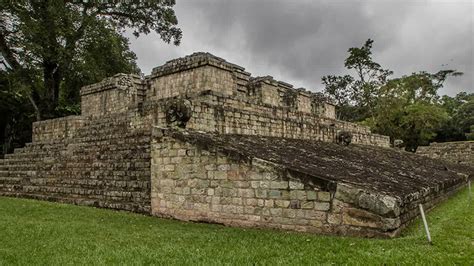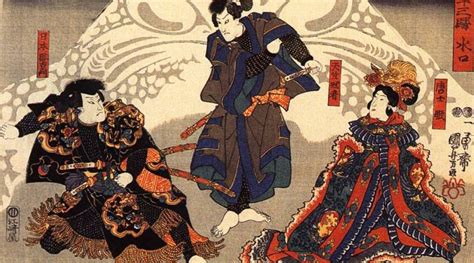Explore the colonization and impact of Portuguese rule on Brazilian independence, monarchy era, and abolition of slavery in Brazil. Learn about Brazil’s rich history.
Colonization of Brazil
Contents
Colonization of Brazil
Colonization of Brazil
The colonization of Brazil began in the early 16th century when the Portuguese arrived in the land that would become known as Brazil. The Portuguese were drawn to Brazil because of its abundant natural resources, including precious metals and hardwoods. Upon their arrival, they encountered indigenous peoples who had been living in the region for thousands of years. The Portuguese quickly established control over the territory and began to exploit its resources.
One of the most significant aspects of the colonization of Brazil was the establishment of large-scale plantations, particularly for the cultivation of sugarcane. The Portuguese brought in enslaved Africans to work on these plantations, laying the groundwork for what would become a deeply entrenched system of slavery in Brazil. This mass importation of enslaved Africans had a profound impact on the demographics and culture of Brazil, as well as its economy and social structure.
As the Portuguese continued to expand their presence in Brazil, they encountered resistance from both indigenous peoples and rival European powers. In response to these challenges, the Portuguese crown implemented policies and practices that sought to solidify their control over the region. This included the establishment of administrative structures, the construction of cities and forts, and the implementation of laws and regulations to govern the colony.
The colonization of Brazil had far-reaching consequences for the land and its inhabitants, shaping the country’s history, culture, and society in profound ways. The legacy of Portuguese colonial rule can still be seen in Brazil today, from its language and religion to its architecture and cuisine.
Impact of Portuguese rule
The impact of Portuguese rule on the history of Brazil is significant and far-reaching. When the Portuguese first arrived in Brazil in the 16th century, they brought with them their language, culture, and traditions, which have left a lasting imprint on the country. The Portuguese also established a colonial administration that shaped the economic and social structure of Brazil, introducing new crops and farming techniques that transformed the landscape and fueled the growth of the plantation system.
Under Portuguese rule, Brazil became a major producer of sugar, coffee, and other commodities, which made it a valuable asset to the Portuguese crown. However, this economic prosperity came at a high cost for the indigenous peoples and enslaved Africans who were exploited to labor on the plantations. The legacy of this exploitation and the resulting social hierarchy still influences Brazilian society to this day.
In addition to economic changes, the Portuguese also left a lasting impact on the religious and cultural landscape of Brazil. The introduction of Catholicism and the construction of churches, cathedrals, and religious institutions throughout the country have shaped the spiritual and moral values of the Brazilian people. The Portuguese language became the dominant means of communication, leading to the gradual displacement of indigenous languages and the blending of diverse cultural influences into a uniquely Brazilian identity.
Overall, the Portuguese rule had a profound and lasting impact on the history and development of Brazil, shaping its economy, society, and culture in ways that continue to be felt in the present day.
Brazilian independence movement
History of Brazil
The Brazilian independence movement was a significant period in the history of Brazil, marking the country’s journey towards freedom from Portuguese colonial rule. The movement was influenced by various internal and external factors, including the Napoleonic Wars and the independence movements in other Latin American countries.
One of the key events of the Brazilian independence movement was the declaration of independence by the then-Prince Regent Dom Pedro on September 7, 1822. This event, known as the Cry of Ipiranga, signaled Brazil’s formal break from Portugal and the beginning of its status as an independent nation.
The independence movement was not without its challenges, as it faced opposition from both Portuguese loyalists and internal conflicts within Brazil. However, through diplomatic negotiations and military actions, Brazil eventually succeeded in gaining recognition as an independent state.
The Brazilian independence movement culminated in the coronation of Dom Pedro I as the first Emperor of Brazil in 1822. This marked the establishment of the Brazilian Empire and the beginning of a new era in the country’s history.
The legacy of the Brazilian independence movement continues to resonate in the country’s cultural and historical identity, serving as a reminder of the resilience and determination of the Brazilian people in their pursuit of self-governance and national sovereignty.
Era of Brazilian monarchy
The Era of Brazilian Monarchy began in 1822 with the declaration of independence from Portugal and lasted until 1889, when Brazil became a republic. During this period, Brazil was ruled by Emperors Pedro I and Pedro II of the House of Braganza. The monarchy was established as a constitutional and parliamentary monarchy, with the emperor having significant power but also with a parliament that had certain powers and limitations. This era was marked by periods of relative stability and economic growth, as well as political and social conflicts.
In the early years of the monarchy, Brazil struggled with the question of centralization versus regional autonomy, as well as with the legacy of slavery. The country also faced external threats, including border disputes and conflicts with neighboring countries. The monarchy tried to navigate these challenges through a combination of political reforms, economic development initiatives, and diplomatic efforts.
During the latter part of the 19th century, Brazil experienced growing discontent with the monarchy, fueled by social inequality, economic hardships, and changing attitudes towards traditional forms of government. The abolitionist movement gained strength, and there were also calls for greater republican and democratic reforms. The monarchy’s position became increasingly untenable, and in 1889, a military coup led to the establishment of a republic.
Despite its eventual downfall, the era of Brazilian monarchy left a lasting impact on the country’s history and culture. The monarchy shaped Brazil’s political and social institutions, as well as its national identity and sense of unity. The legacy of the monarchy continues to be reflected in Brazil’s traditions, customs, and historical landmarks, contributing to the country’s rich and diverse heritage.
Abolition of slavery in Brazil
The abolition of slavery in Brazil was a significant and transformative event in the country’s history. Slavery had been deeply ingrained in Brazilian society for centuries, with millions of African slaves forcibly brought to the country to work on plantations and in other labor-intensive industries. The institution of slavery created a stark divide between the wealthy plantation owners and the enslaved population, leading to widespread inequality and exploitation.
Despite the long-standing nature of slavery in Brazil, the abolitionist movement gained momentum throughout the 19th century. Influenced by similar movements in other parts of the world, Brazilian abolitionists began to mobilize and advocate for the end of slavery. Their efforts were met with resistance from powerful landowners and political figures who benefitted from the labor of enslaved individuals.
However, the growing outcry against the cruelty and inhumanity of slavery could not be ignored. In 1888, Princess Isabel of Brazil signed the Golden Law, officially abolishing slavery in the country. This landmark legislation marked the end of an era of exploitation and suffering for millions of people, and paved the way for a more just and equitable society.
The abolition of slavery in Brazil had far-reaching impacts on the country’s economy, politics, and social dynamics. The freed individuals faced significant challenges as they sought to establish themselves in a society that had long denied them their basic human rights. The legacy of slavery continues to shape Brazil to this day, serving as a reminder of the enduring struggle for freedom and equality.














